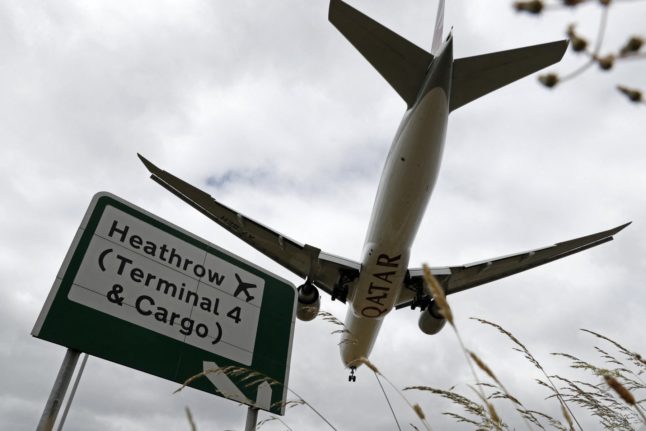After owning the UK travel hub for 17 years, Ferrovial said Tuesday it had reached a £2.37 billion (€2.74 billion, $3.01 billion) deal with Paris-based Ardian and Riyahd’s Public Investment Fund (PIF).
Under the terms of the agreement, Ardian will buy 15 percent of FGP Topco, the holding company that controls the UK’s busiest airport, and the Saudi public fund will take 10 percent, according to a statement released by the Spanish construction giant.
“Over the last 17 years, we have been contributing to Heathrow’s transformation, together with our fellow shareholders, achieving some excellent milestones throughout our long-term role as investor,” said Luke Bugeja, head of Ferrovial’s airports business.
“We are very pleased to have made Heathrow one of the world’s most connected airports and the busiest airport in Europe.”
The specialist in transport infrastructure management operates a vast portfolio of global assets, including airports interests in Turkey and New York.
It bought its stake in Heathrow Airport in a 2006 takeover and initially held 56 percent of the hub. But it has gradually reduced its stake in recent years.
In 2012, the group sold 10.62 percent to Qatar Holding for £478 million, followed by a 5.72 percent stake to China’s CIC International for the equivalent of 319 million euros ($415 million).
Last month, Heathrow said it recorded its highest-ever September passenger numbers of more than seven million, which also marked the first time it exceeded pre-pandemic traffic figures.
Ferrovial said it remains “fully committed to advancing its airport business” and maintains a 50 percent stake in three other UK hubs — Aberdeen, Glasgow and Southampton — as well as 60 percent stake in Turkey’s Dalaman Airport and a 49 percent stake in the new Terminal 1 at JFK Airport in New York.
This summer, the firm angered Spain’s government by relocating its headquarters to the Netherlands in a decision it said would give it access to cheaper credit and make it more attractive to investors ahead of a planned US stock listing.



 Please whitelist us to continue reading.
Please whitelist us to continue reading.
Member comments